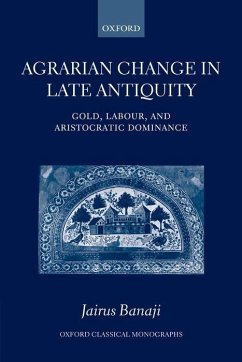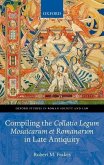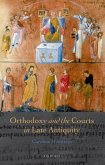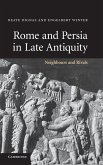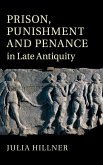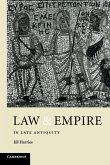A critique of Max Weber's influential ideas about the Mediterranean region in late antiquity, this book shows that the fourth to seventh centuries were in fact a period of major social and economic change, bound up with an expanding circulation of gold.
Agrarian Change in Late Antiquity, the first major study of its kind, presents a critique of Weber's influential ideas about late antiquity. Jairus Banaji collects together a vast range of evidence to show that the fourth to seventh centuries were a period of major social and economic change, bound up with an expanding circulation of gold. The author traces the evolution of a new aristocracy in the eastern Mediterranean, and discusses the implications of its involvement in the monetary and business economy of the period.
Agrarian Change in Late Antiquity, the first major study of its kind, presents a critique of Weber's influential ideas about late antiquity. Jairus Banaji collects together a vast range of evidence to show that the fourth to seventh centuries were a period of major social and economic change, bound up with an expanding circulation of gold. The author traces the evolution of a new aristocracy in the eastern Mediterranean, and discusses the implications of its involvement in the monetary and business economy of the period.

